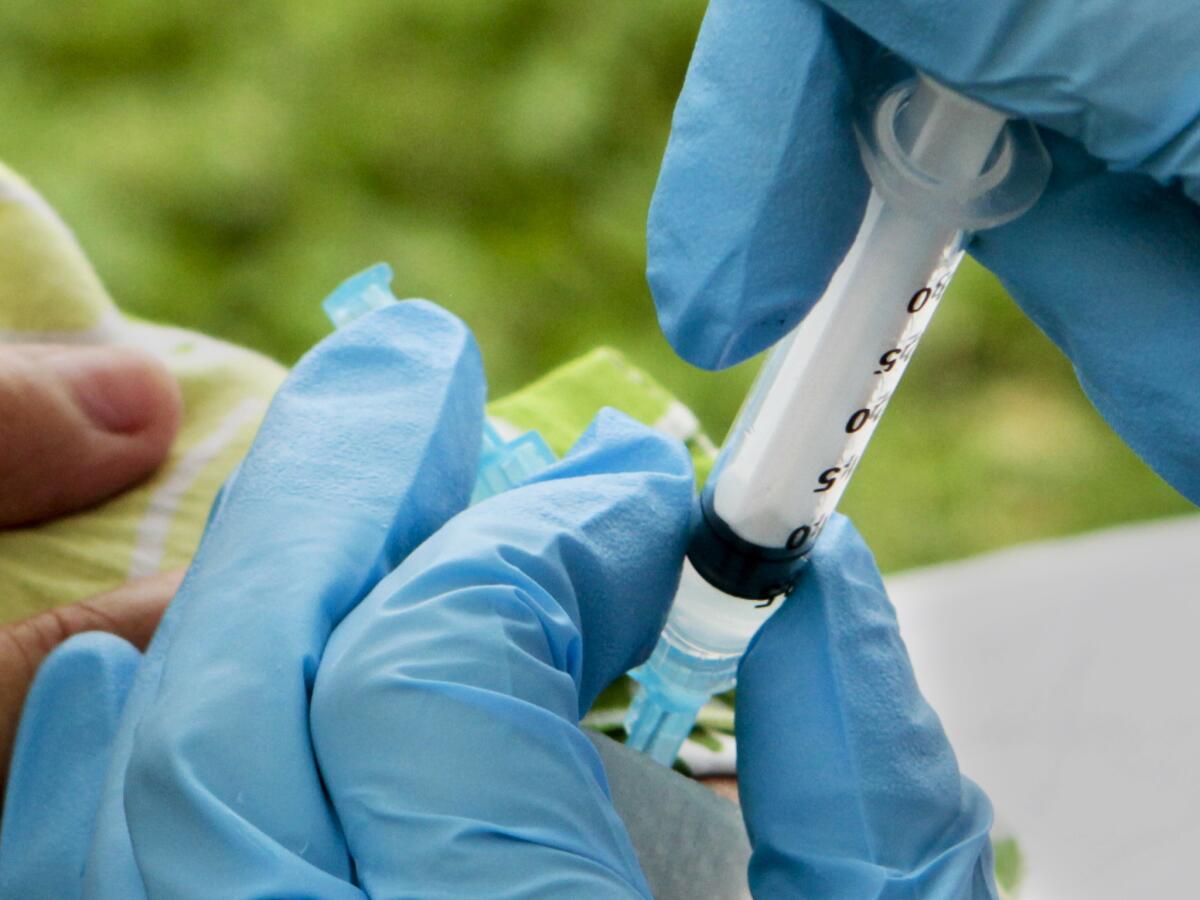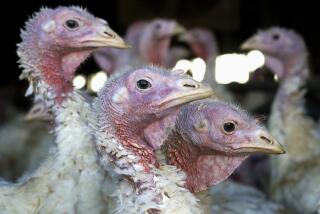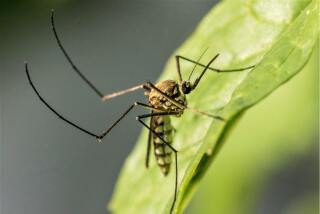Infant dies of whooping cough in San Bernardino County

- Share via
As public health officials prepare for a possible outbreak of whooping cough, the death of a baby in San Bernardino County from the disease has prompted warnings that pregnant women should be vaccinated.
The death announced Tuesday marked the first time the disease had killed an infant in California in two years. State and county officials would not say when the child died or provide any further details.
The disease is most dangerous for infants too young to be vaccinated against it, so public health officials urge all expectant mothers to be immunized. But state data show that of pregnant women in California, those in San Bernardino County were among the least likely to have been vaccinated.
“If you want to prevent deaths from pertussis in the U.S. then you have to immunize mothers,” said Dr. Paul Offit, an infectious disease specialist at Children’s Hospital of Philadelphia.
Whooping cough, named for the sound people make when they’re gasping for air, kills about 20 people in the United States each year, almost all of them infants.
The death comes amid warnings that California could be in for an outbreak in 2018, though officials said Tuesday that this death does not signal that one has begun. Whooping cough outbreaks tend to hit every three to five years and California’s last were in 2010 and 2014.
Doctors recommend that pregnant mothers get a booster shot between 27 and 36 weeks of pregnancy. The shot can protect the baby until it is old enough to begin receiving its own pertussis immunizations at about 2 months.
But in California, only 52% of mothers who delivered their babies in 2016 were vaccinated, according to a report from the California Department of Public Health. In San Bernardino County that year, only 38% of new mothers had been vaccinated.
Catherine Martin, with the pro-vaccine advocacy group California Immunization Coalition, has been developing a campaign to encourage pertussis vaccinations among expectant mothers.
“We’re kind of due, unfortunately, for a pertussis outbreak, where infants are often the most vulnerable,” she said.
California’s 2010 outbreak led to 10 infant deaths; two died during the 2014 episode.
Martin thinks some mothers might be wary of doing anything that might seem unnatural, such as getting a vaccine, during pregnancy.
“There’s an ever-growing list of things moms won’t do, and I think I would’ve been afraid of that too, but that’s where science comes in,” Martin said. “We know it’s a safe and very effective way of preventing disease.”
San Bernardino health officials said they were still trying to determine whether the baby who died or its mother had been vaccinated. The baby was under six months old, they said.
Anyone can contract whooping cough, but the disease is particularly dangerous for infants because it clogs windpipes, Offit said. Babies have smaller windpipes that are more easily clogged, and they’re not as able to clear out the mucus as adults are, he said.
He said that preventing people from getting sick requires high immunization rates everywhere, but preventing deaths, because they’re almost all in babies, comes down to the moms.
“They may be afraid they’re hurting their child, when it fact the opposite is true,” he said.
As of early July, there had been 1,772 cases of pertussis in the state in 2018, higher than the 1,662 cases at the same time in 2017 and 906 cases in 2016, according to state data.
But those numbers pale in comparison to what the state had experienced by this time in 2014, the last outbreak year. By July, 6,536 people had been diagnosed with pertussis.
“This baby’s death is a tragedy for the family and for California as a community, as this is a preventable disease,” Dr. Karen Smith, director of the state Department of Public Health, said in a statement Tuesday. “This serves as a grim reminder that whooping cough is always present in our communities, and immunizations are the first line of defense.”
Twitter: @skarlamangla
UPDATES:
6:40 p.m.: This article was updated with additional reporting.
This article was originally published at 4:40 p.m.
More to Read
Sign up for Essential California
The most important California stories and recommendations in your inbox every morning.
You may occasionally receive promotional content from the Los Angeles Times.











